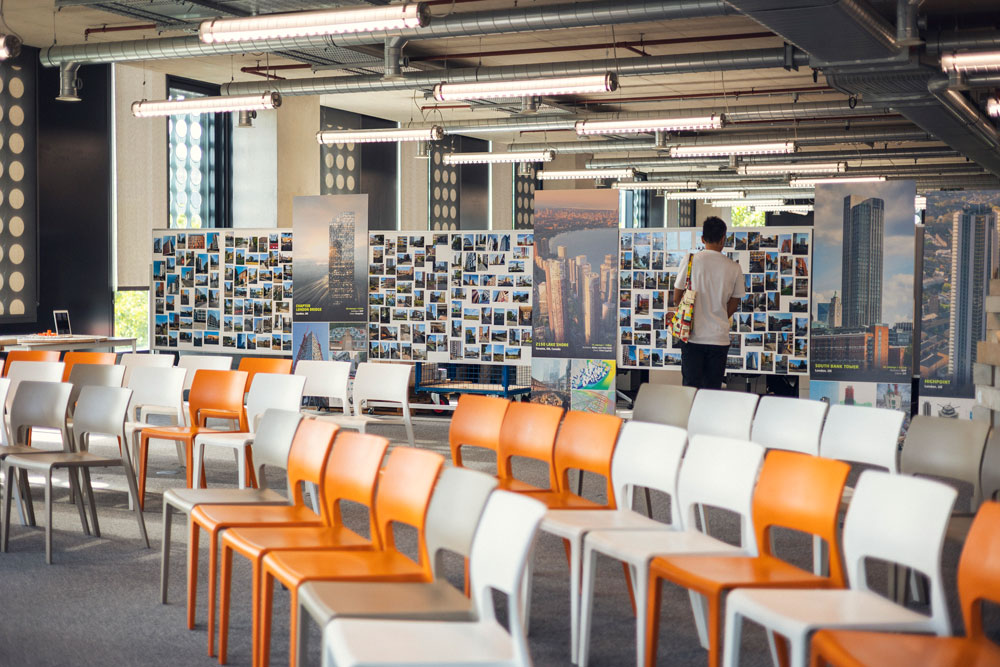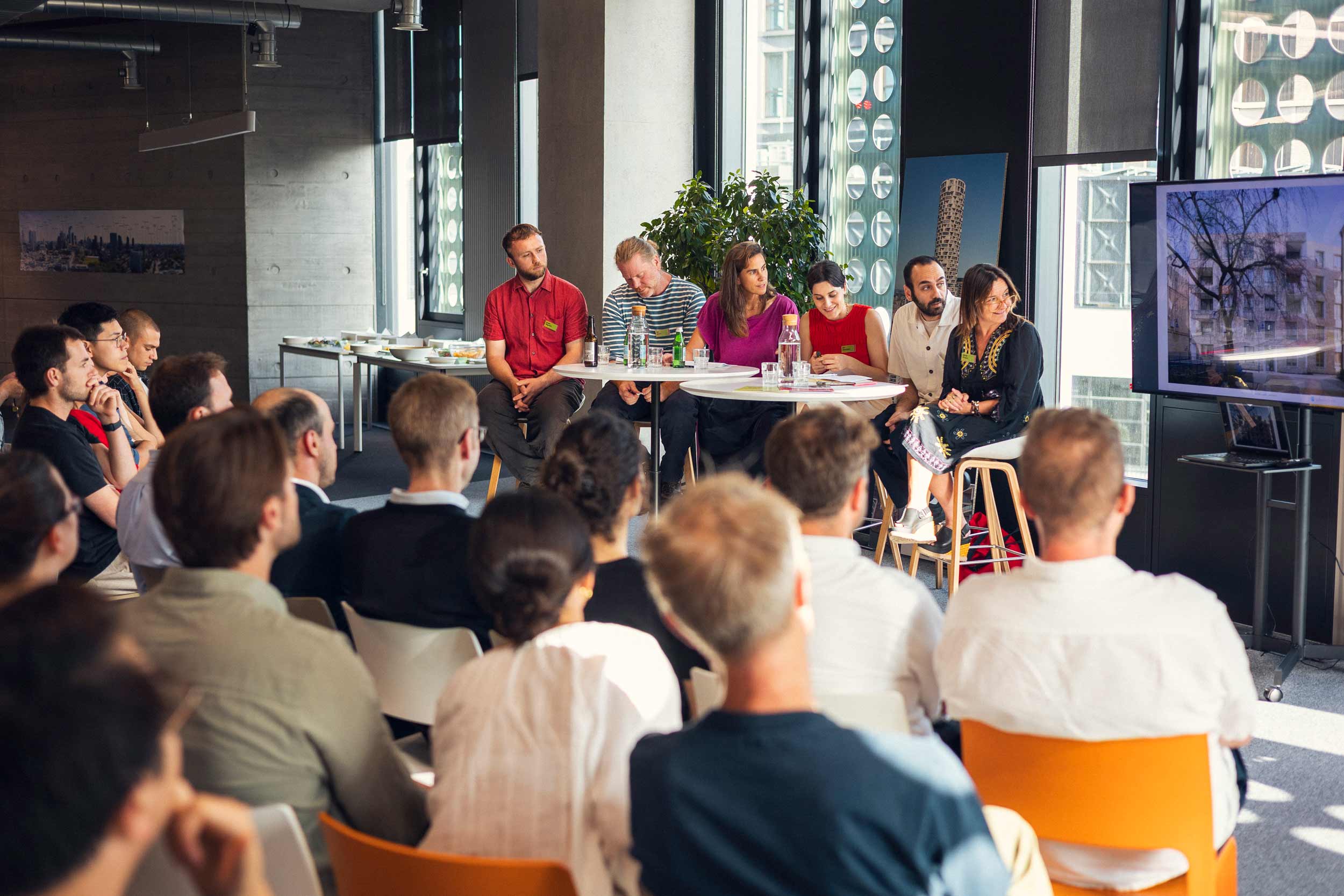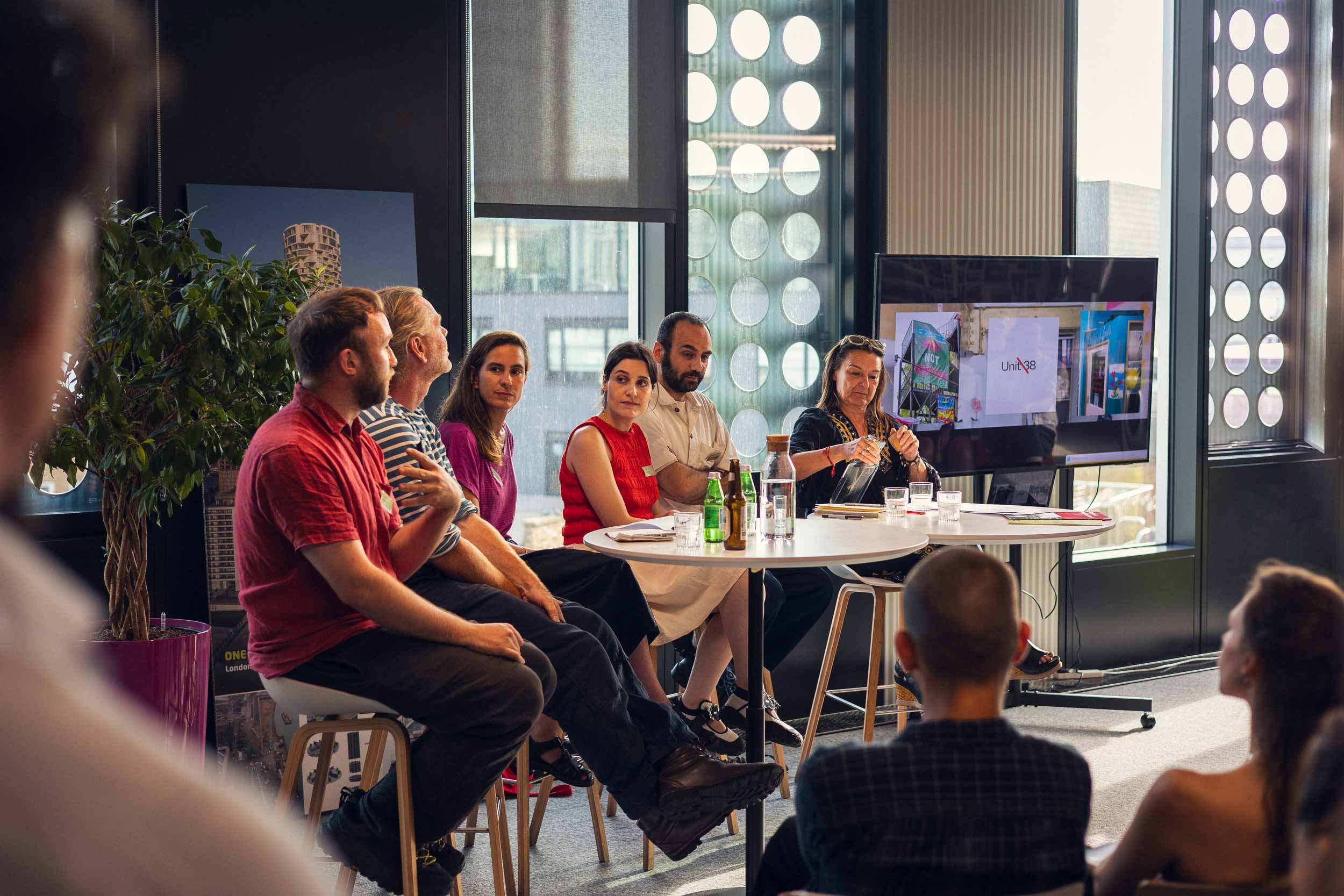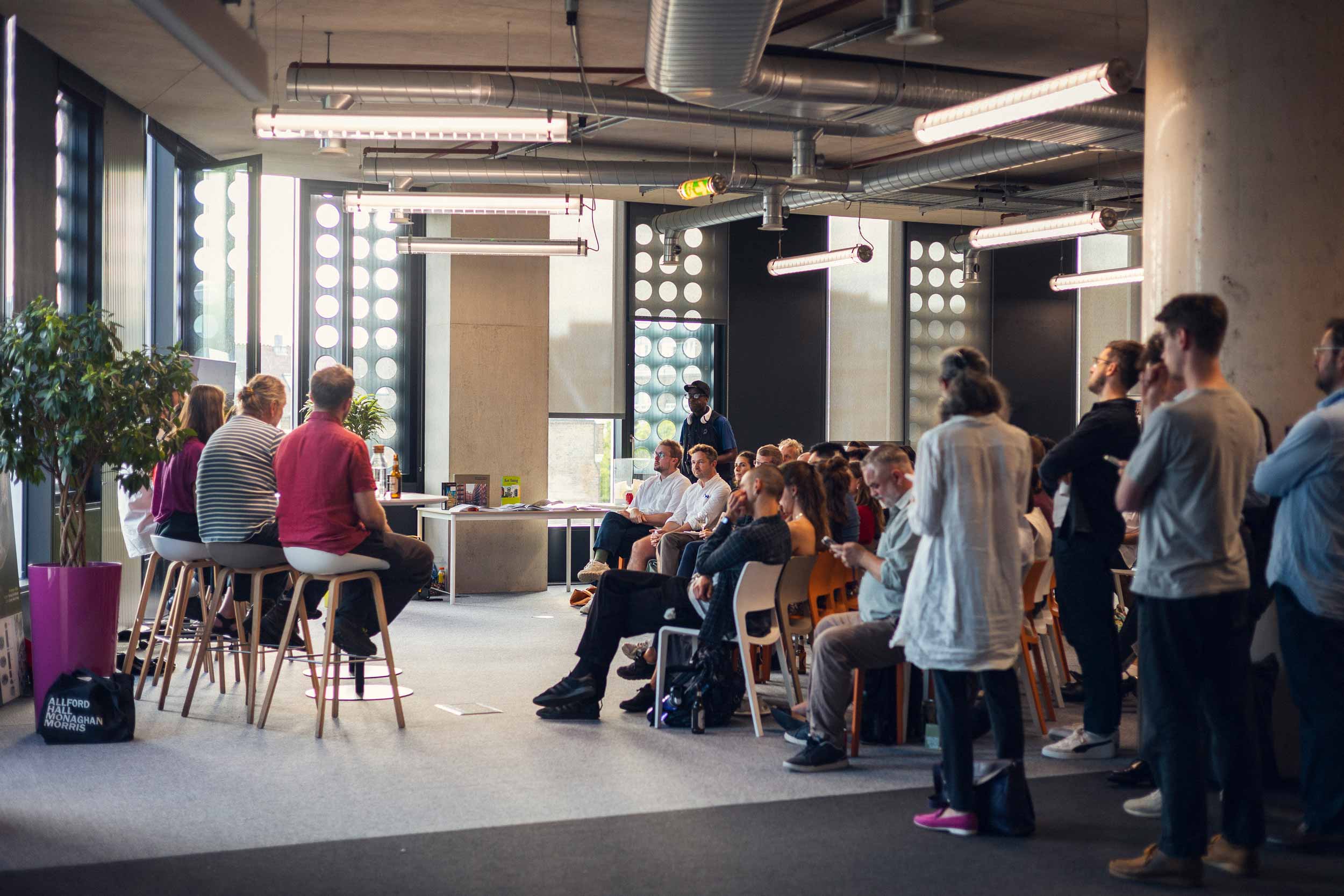As part of this year’s London Festival of Architecture, AKT II hosted an evening panel discussion to spotlight one of the most pressing issues in our sector — the UK’s housing crisis — with a particular focus on who gets to shape our cities, and whose voices are amplified or ignored in the process.


The event, titled “Housing Crisis: Who’s Being Heard?”, brought together a diverse panel of contributors from across housing, architecture, activism and policy. The goal was not only to explore the structural challenges affecting housing delivery, but to elevate the voices that are too often left out of the conversation – those with lived experience, local knowledge, and alternative perspectives that can radically reframe what housing should be.
Our panel brought together leading voices from across architecture, local government and grassroots practice:
Anne Schroell – Niall McLaughlin Architects
Nasios Varnavas & Era Savvides – Urban Radicals
Edward Jarvis – London Borough of Camden
Chaired by Alicia Pivaro – London School of Architecture
Each offered a unique perspective—some grounded in decades of practice, others in community organising, policy delivery, or experimental design. Their short talks and Pecha Kucha presentations sparked open and critical dialogue on the role of architects in a complex and often contradictory housing landscape.
“Only a crisis—actual or perceived—produces real change… The actions that are taken depend on the ideas that are lying around.”
The panel began by grounding the discussion in the stark realities that shape the housing landscape:
700,000 homes stand empty across the UK
74% of new housing is of poor or mediocre quality
The construction sector is responsible for 62% of UK waste
4.5 million children are growing up in poverty
Major housebuilders continue to report supernormal profits—up to 32%
These figures reflect not just a crisis of supply and affordability, but of values: where the system serves investment portfolios over social good, and efficiency over equity or quality.

Rather than framing the conversation around a binary choice – either working within policy constraints or challenging them outright – the panel explored how architects might adopt a more nuanced approach and do both simultaneously.
This includes developing alternative models for financing and procurement that prioritise long-term social value over short-term profit. It also means amplifying community-led approaches that place local voices at the centre of decision-making.
Architects must continue to champion design quality that delivers social, environmental, and economic sustainability – not just aesthetic appeal. In parallel, there is a need to push for greater transparency, embrace innovation in construction methods and materials, and encourage experimentation throughout the planning and delivery process.
Many of these strategies are already being explored through existing initiatives, such as Architects Action for Affordable Housing, the Design Council’s Housing Task Force, and the RIBA’s Housing Matters: 20 Ways to Tackle the Housing Crisis – all of which were referenced and celebrated during the discussion.


The message of the evening was clear: the crisis is real, but there are solutions. What’s needed now is collective agency.
Whether through local authority leadership, strategic design interventions, or stronger networks of support across the profession, architects must actively participate in shaping a more just and liveable future. That includes listening harder, sharing power, and designing with long-term social return in mind.
This panel was a step towards ensuring those ideas are not just lying around, but ready to be picked up and acted on.
We’re grateful to our panellists, our audience, and the London Festival of Architecture for creating space for this timely and necessary exchange. The housing crisis is not new, but renewed energy, shared insight, and bold ideas give us reason to believe that meaningful change is possible.